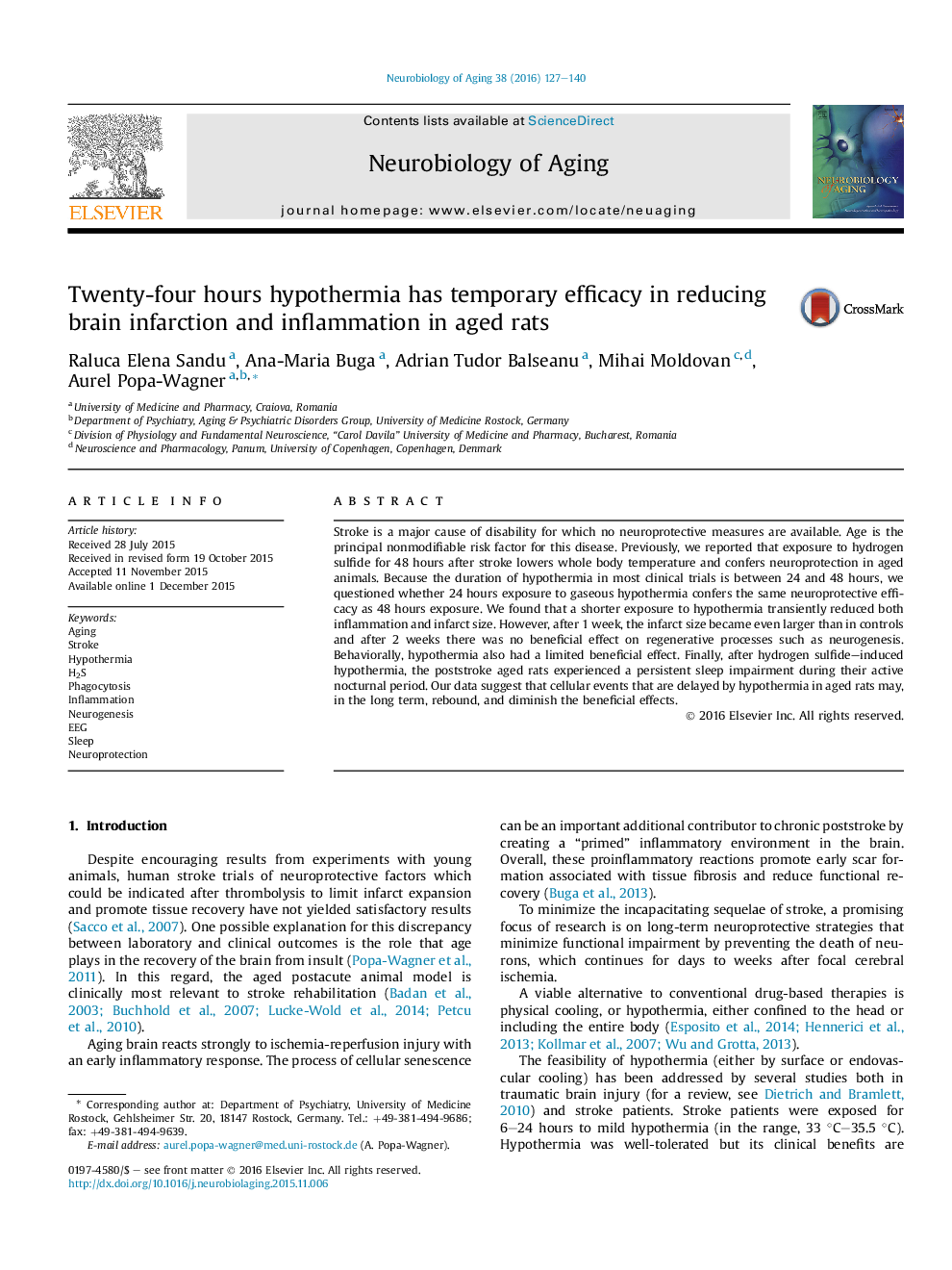| کد مقاله | کد نشریه | سال انتشار | مقاله انگلیسی | نسخه تمام متن |
|---|---|---|---|---|
| 6803662 | 1433547 | 2016 | 14 صفحه PDF | دانلود رایگان |
عنوان انگلیسی مقاله ISI
Twenty-four hours hypothermia has temporary efficacy in reducing brain infarction and inflammation in aged rats
ترجمه فارسی عنوان
هیپوترمی 24 ساعته در کاهش انفارکتوس مغز و التهاب موش صحرایی موقت موثر است
دانلود مقاله + سفارش ترجمه
دانلود مقاله ISI انگلیسی
رایگان برای ایرانیان
کلمات کلیدی
موضوعات مرتبط
علوم زیستی و بیوفناوری
بیوشیمی، ژنتیک و زیست شناسی مولکولی
سالمندی
چکیده انگلیسی
Stroke is a major cause of disability for which no neuroprotective measures are available. Age is the principal nonmodifiable risk factor for this disease. Previously, we reported that exposure to hydrogen sulfide for 48Â hours after stroke lowers whole body temperature and confers neuroprotection in aged animals. Because the duration of hypothermia in most clinical trials is between 24 and 48Â hours, we questioned whether 24Â hours exposure to gaseous hypothermia confers the same neuroprotective efficacy as 48Â hours exposure. We found that a shorter exposure to hypothermia transiently reduced both inflammation and infarct size. However, after 1 week, the infarct size became even larger than in controls and after 2Â weeks there was no beneficial effect on regenerative processes such as neurogenesis. Behaviorally, hypothermia also had a limited beneficial effect. Finally, after hydrogen sulfide-induced hypothermia, the poststroke aged rats experienced a persistent sleep impairment during their active nocturnal period. Our data suggest that cellular events that are delayed by hypothermia in aged rats may, in the long term, rebound, and diminish the beneficial effects.
ناشر
Database: Elsevier - ScienceDirect (ساینس دایرکت)
Journal: Neurobiology of Aging - Volume 38, February 2016, Pages 127-140
Journal: Neurobiology of Aging - Volume 38, February 2016, Pages 127-140
نویسندگان
Raluca Elena Sandu, Ana-Maria Buga, Adrian Tudor Balseanu, Mihai Moldovan, Aurel Popa-Wagner,
